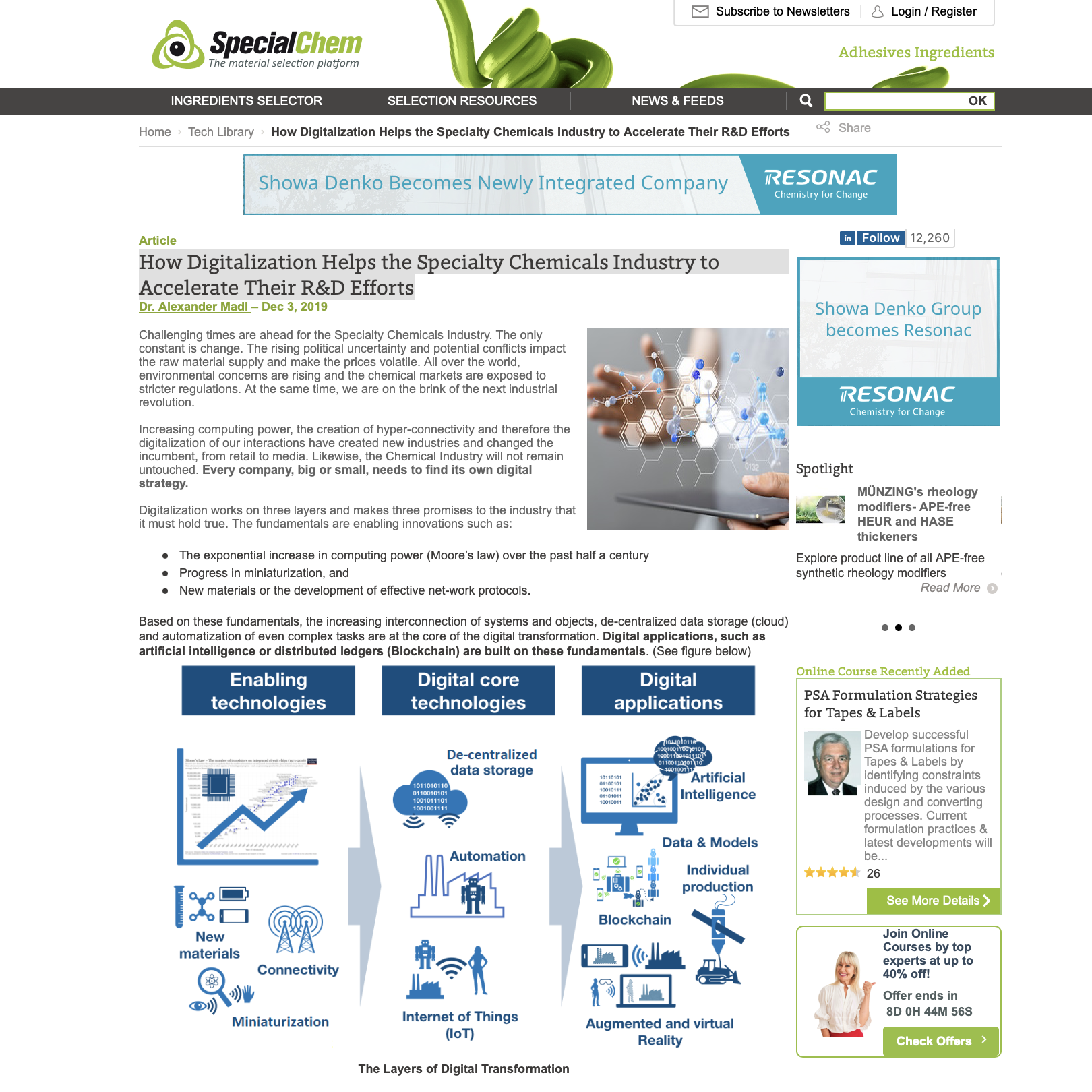
Challenging times are ahead for the Specialty Chemicals Industry. The only constant is change. The rising political uncertainty and potential conflicts impact the raw material supply and make the prices volatile. All over the world, environmental concerns are rising and the chemical markets are exposed to stricter regulations. At the same time, we are on the brink of the next industrial revolution.
Increasing computing power, the creation of hyper-connectivity and therefore the digitalization of our interactions have created new industries and changed the incumbent, from retail to media. Likewise, the Chemical Industry will not remain untouched. Every company, big or small, needs to find its own digital strategy.
Digitalization works on three layers and makes three promises to the industry that it must hold true. The fundamentals are enabling innovations such as:
- The exponential increase in computing power (Moore’s law) over the past half a century
- Progress in miniaturization, and
- New materials or the development of effective net-work protocols.
Based on these fundamentals, the increasing interconnection of systems and objects, de-centralized data storage (cloud) and automatization of even complex tasks are at the core of the digital transformation. Digital applications, such as artificial intelligence or distributed ledgers (Blockchain) are built on these fundamentals.
The promises of the digital transition are:
- Trusted and secure automatic transactions without involving a human agent, leading to the release of humans from getting involved into routine tasks.
- High information transparency and accessibility, across borders and in real-time, allowing for more informed decision making.
- An increased capability to identify and to visualize patterns from diverse data pools allowing a new level of understanding of complex, and often non-linear systems.
The machines (like desktop computers, laptops & keyboards) will disappear, in advance of mobile devices and voice control.
Digitalization will catalyze many transformations — in the business models, in supply chain, in production as well as in our work organization and therefore in HR. But how does the digital revolution impact the way the Specialty Chemical Industry does innovation?
The laboratory, be it a synthesis lab in the raw material industry or an application lab for adhesives or paint formulations, is the core of chemistry-based innovation. But in the lab itself, the procedures and work processes, haven’t changed much from the past. There is still a high amount of qualified manual labor.
The information sources or lab journals moved from paper files to a computer drive, but are often not easy to access than before. We are still miles away from having all data in one place and evaluation remains a largely manual task. But even more, there are many distractions that keep the chemists away from creative work.
There is an increasing demand put on administration and documentation, for safety and compliance reasons. And with all (digital) information in hand, it is not easy to navigate through the information overload to find what one needs in the moment.
Continue reading at SpecialChem about the promises of digital transformation & how these promises hold true for the Special Chemistry Industry to accelerate their R&D efforts. Also, understand the layers of digital transformation and elements of data-driven development.